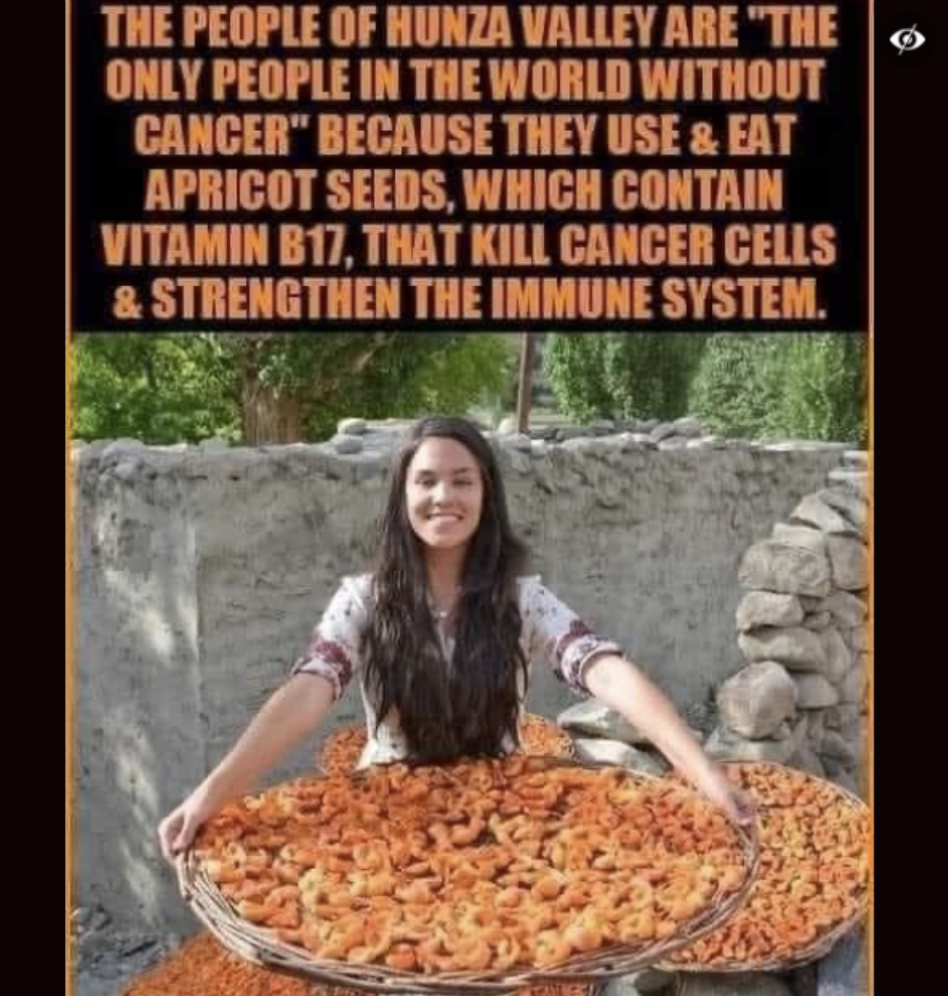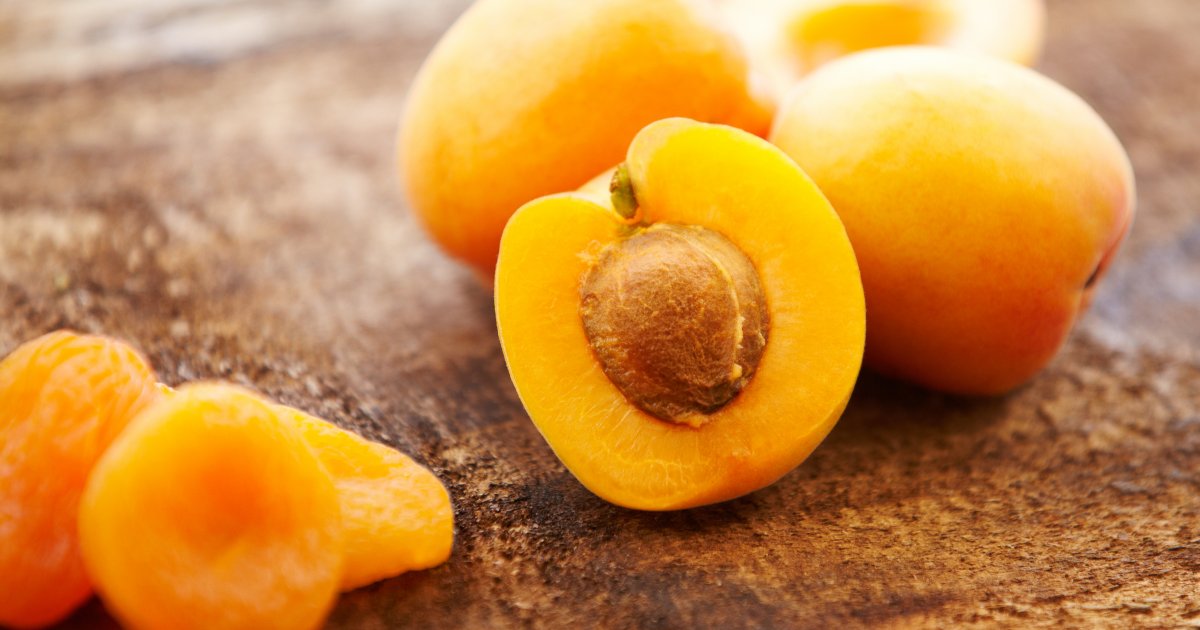Apricot Myth Debunked
- False claims that apricot seeds in Pakistan’s Hunza Valley prevented and cured cancer circulated the internet this month.
- The misinformation has been summarily debunked by Agence France-Presse.
- It’s important to educate yourself, look at the source, and come to each doctor’s appointment with a plan; be an advocate for your own health, our experts say.
 If the all-caps delivery didn’t tip you off, let us do it for you: This is untrue. There is zero evidence to support the claim that apricot seeds kill cancer cells, Tanya Buchanan, CEO of the nonprofit organization Cancer Council Australia, tells Agence France-Presse. "The claims have stemmed from misinformation,” says Buchanan. AFP also reports, “Claims that people in the Hunza Valley are cancer-free due to consumption of apricot seeds were debunked as early as 1980.”
If the all-caps delivery didn’t tip you off, let us do it for you: This is untrue. There is zero evidence to support the claim that apricot seeds kill cancer cells, Tanya Buchanan, CEO of the nonprofit organization Cancer Council Australia, tells Agence France-Presse. "The claims have stemmed from misinformation,” says Buchanan. AFP also reports, “Claims that people in the Hunza Valley are cancer-free due to consumption of apricot seeds were debunked as early as 1980.”A 1980 study published in Cancer, says, “[An] often repeated, unsupported claim [is] that the Hunzas, living in an isolated region of the Himalayas, have a very long life span and are remarkably free from disease. Their diet is presumed to include considerable amounts of apricot seeds. These claims were shown to be totally false by a Japanese expedition who found that the Hunzas were malnourished and suffered from a variety of disease including cancer.”
Educate Yourself & Advocate For Yourself
Whether or not you’re currently battling cancer or in good health, it’s important to be aware of misinformation like the kind noted above. Dr. Zuri Murrell, a colorectal surgeon at Cedars-Sinai, encourages patients to be their own best advocate, to educate themselves, and to come to each doctor’s appointment with a plan.
He says in an earlier interview, “It’s important to know that while we have guidelines– OK– guidelines, especially in this country are meant to take care and do the right thing for the largest number of people, but it’s also with the littlest use of resources. And that’s the truth.”
“The truth is you have to be in tune with your body, and you realize that you are not the statistic,” says Dr. Murrell. “That’s why it’s important for you to actually educate yourself and be your own health care advocate. And that’s something that I think is really important. You should lead each doctor’s appointment with a plan.”
Be Pushy, Be Your Own Advocate… Don't Settle
Cancer & the COVID-19 Vaccine
Amid the ongoing pandemic, it’s important for everyone especially people battling cancer to prevent the spread of disease. For those with cancer, you can safely get the COVID-19 vaccine.
Vincent Rajkumar, professor of medicine at the Mayo Clinic in Rochester, Minnesota, shares in an earlier interview what cancer patients should know about the vaccine. “There’s far more enthusiasm for the vaccine and then, yes, there are some people who are concerned is it as effective. And those people, I say these vaccines work,” he says.
“They work in preventing symptomatic COVID. And they also work really well in preventing severe COVID. There is a concern that the vaccines may not be that effective. But again, 70% effective is way better than 0% effective if you don’t have a vaccine. So I recommend all cancer patients to get the vaccine when they are offered one,” says Rajkumar.
5 COVID-19 Vaccine Questions Answered by Expert Physician
Learn more about SurvivorNet's rigorous medical review process.


